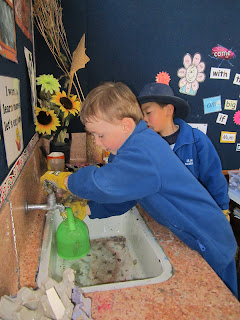Today we had an unexpected visitor fly into Room 12... a big bumble bee!
We opened the door so it could find it's way back outside.
After printing we went outside and used chalk to create some signs to show the bee where to find some nectar in our garden.
 |
| A boat for the bee to play in. |








































